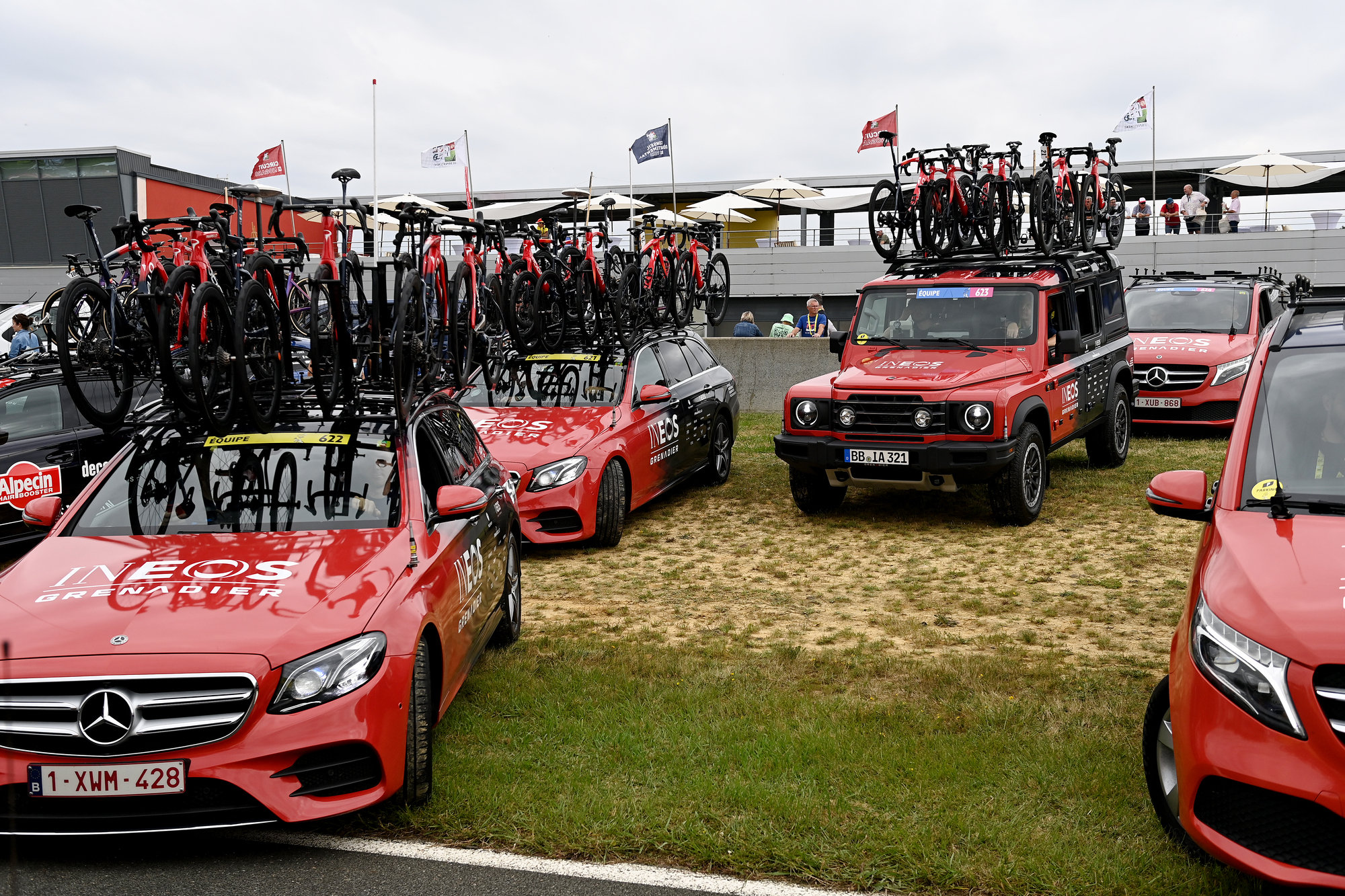WorldTour teams have an extra three years to halve carbon emissions before losing license - UCI clarifies
A carbon emissions tracker has been introduced and it is mandatory for all stakeholders to use it


Despite previously stating that men’s and women’s WorldTour teams would need to halve their carbon emissions by 2027 or risk having their top-tier licence revoked, the UCI have clarified that the ruling will in fact not take place until 2030.
In an interview about sustainability with Cycling Weekly in the spring, that was part-published in July, the UCI president David Lappartient said: “It will be mandatory for them [WorldTour teams] to be carbon neutral in 2030, with the goal to reduce their emissions by 50% in 2027 compared to 2019. After 2027 this will be mandatory to even keen a WorldTour licence.”
The statement attracted concern from within the WorldTour peloton, with Cycling Weekly understanding that several teams were blindsided by the announcement, and some claimed that they had not previously been made aware of the coming change. One manager of one of the richest men’s WorldTour teams told CW at the Tour de France that “this is the first I have heard about it.”
In a subsequent interview with CW, however, Lappartient has said that the non-obligatory objective is for teams to reduce their emissions by 2027, but that it will not be mandatory until 2030.
Insisting he was not backtracking on previous statements, but simply had not accurately portrayed the finer details of the incoming rule change, Lappartient said: “Maybe I was not clear in what I said the first time. We want to do both things: to have our emissions reduced by 50% in 2030, and to also be carbon neutral. Half of the journey is in 2027 and it will not be mandatory but kind of a goal. But in 2030 it moves from a goal to mandatory.
“It will be mandatory [for WorldTour teams in 2030]. It will be part of the licence program. Today, the licence commission has to verify if they [teams] have a pay guarantee, have enough money to pay [riders and staff], the sporting level of the team is good enough, if their anti-doping measures are strong, and [in 2030] they will have to reduce their emissions by 50% and be carbon neutral. This will be another mandatory point on the specifications to be a WorldTour team in 2030.”
Expanding more on the 2027 goal, Lappartient added: “We want a stage in between, not a mandatory one where you can lose your licence, however a point [in the middle] where we want the team not to wait until the last moment [to adapt to the rule change].”
The latest race content, interviews, features, reviews and expert buying guides, direct to your inbox!
In the original interview, Lappartient - who first briefly informed teams of the change at last November's WorldTour seminar in Monaco - admitted that “as we speak today, some of them [the teams] are on board, some of them are more [into] greenwashing.” Responding to the information that some teams are disgruntled by the incoming change, he said: “We have a common responsibility and things can only move [forward] if you're convinced you have to be part of the journey, or because you’re forced to do this.
“Some of them are already on board; for others, if you don’t put in the guidelines and specifications or make it mandatory, it’s not sure it’s something they’d reach. At this point in time, with climate change being something important worldwide, we can’t say it’s just something we want to reach.
“I have spoken with some of the sponsors and they will also get their teams to do that as for their companies it’s important. What may be difficult for them [now] will be normal in 2030. I am not afraid. Of course, there are some modifications to what we are currently doing, [but] in this world where climate change is a reality, for major events to survive, we also have to change.”

Lappartient confirmed that the ruling will apply to all stakeholders within the sport, meaning the UCI themselves, race organisers and eventually second- and third-tier teams; he admitted, however, that ProTeam and Continental teams may not be obliged until after 2030.
To this end, the UCI have introduced a sustainability impact tracker that measures carbon emissions. Produced in partnership with Global Climate Initiatives and 261PI over the past 18 months, all teams and races will be obliged to track their emissions with immediate effect via an online platform.
“It’s easy to say you will reduce [but] if you don’t measure the same thing exactly, if you don't know where you’re starting from, and if you don’t provide a tool that is certified…,” Lappartient said. “That was why it was clear to us that if we don’t want to be greenwashed by some of them - maybe they could explain that their emissions were higher or that they had figures that were not the reality - we had to have a tracker that we and they can trust, and it’s something we have decided to launch with experts.”
The tracker made its debut at the recent World Cycling Championships in Glasgow. “Instead of everyone reinventing the wheels, developing their own tools, we have a common tool we can share with the cycling community,” Lappartient added.
“For us, it was clear the UCI must be seen as helping our stakeholders. The goal is not to blame anybody but to bring them on the journey and to help them in doing this. They know they have to change, they are ready to improve, but we must facilitate this by providing tools, and also for their sponsors they need to be sure there is no greenwashing.”
A full interview with UCI president David Lappartient on sustainability will be published in a September edition of Cycling Weekly magazine.
A freelance sports journalist and podcaster, you'll mostly find Chris's byline attached to news scoops, profile interviews and long reads across a variety of different publications. He has been writing regularly for Cycling Weekly since 2013. In 2024 he released a seven-part podcast documentary, Ghost in the Machine, about motor doping in cycling.
Previously a ski, hiking and cycling guide in the Canadian Rockies and Spanish Pyrenees, he almost certainly holds the record for the most number of interviews conducted from snowy mountains. He lives in Valencia, Spain.
